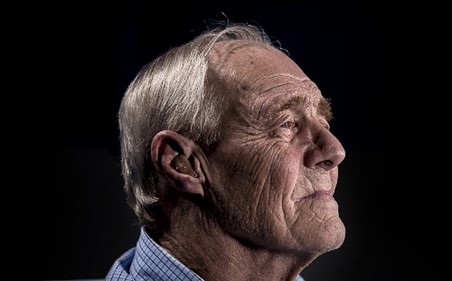Getting to know people and why it's so important
 When you know someone well, you're usually very aware of changes in their personality or routines, especially if they have always done things a certain way.
When you know someone well, you're usually very aware of changes in their personality or routines, especially if they have always done things a certain way.
This was true of a man with learning disabilities who I've supported for a long time. I'll call him Paul though that's not his real name. Paul had quite a fiery personality, but over the course of a year we were seeing the fiery side of him less and less. He seemed tired, lethargic, and unwilling to take part in many of the activities he'd previously enjoyed. Paul always got dressed independently in the mornings but was now either not getting dressed or putting a few items of clothing on over his pyjamas. Eating had been one of his favourite things, but he was now not interested in food and was often taking a long time to eat a meal.
We supported Paul to attend a GP appointment where his medication was reviewed and reduced with only minimal effect. Other tests were done but they didn't show any further health issues. As a team we continued to record changes to his behaviour and routines.
Paul was then supported to go on holiday and it was while we were away, in an unfamiliar environment, that we noticed significant changes. Paul seemed unable to sit or stand up straight and needed to lean on people or lie down. He had difficulty walking and struggled to navigate over different surfaces, for example, from inside to outside, or carpet to hard floor.
On returning home, his support team made a referral to the local Community Learning Disabilities Team where he was supported by the consultant psychiatrist. She arranged for a CT scan at the local hospital, the results of which showed that he had dementia. As the team were already supporting someone else with dementia they had suspected that Paul also had the early signs. The diagnosis was almost a relief; that we were supporting him in the right way and could now work with the psychiatrist and her team to plan for the future.
Following the diagnosis, Paul is now taking regular medication that will hopefully slow down the acceleration of the condition. His team ensures that Paul's home is a quiet, calm environment where he can relax. His routines are kept the same. If the team notices that he is forgetting something, they gently remind him. The furniture in his house is kept in the same position, and we support him to go to places that he knows rather than unfamiliar environments.
Getting a diagnosis was quite a lengthy process - it took about 18 months. At times it was hard for myself and the team to see Paul behaving differently from the person he once was, and to see him losing some of the skills he once had. At times, Paul was his old self but at other times, he was very quiet and seemed withdrawn. It's hard to know how he felt about the diagnosis as he has a severe learning disability and does not communicate verbally. However, with consistency, his amazing staff team delivered fantastic care throughout this difficult period and continue to support him with dignity, kindness, and compassion, enabling him to continue living in his own home, as independently as possible. He seems happy and content.
Julie Bannerman
Team Leader
*Names have been changed to protect identities

